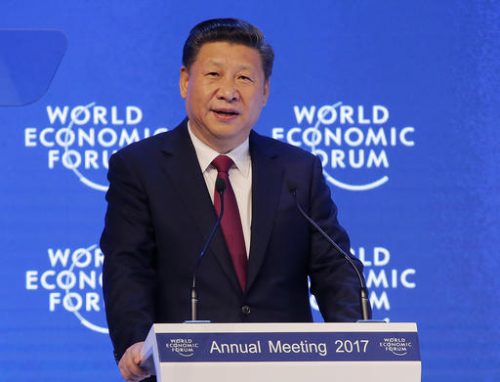China’s poor air quality is an unfortunate reality. From years of burning coal in order to mass produce, China has been left with copious amounts of noxious fog that hangs over much of the country, leading to asthma, acute and chronic respiratory disease and the premature deaths of millions each year.
On Jan. 5, The New York Times reported that China’s National Energy Administration (NEA) announced its plan to invest over $360 billion in renewable energy sources, such as wind and solar power, in the next three years, cutting down on the amount of pollution caused by coal-fired power plants. Yet, uncertainty remains over whether or not the U.S. will follow suit and invest in cleaner energy alternatives.
In China, a country with a population of over 1.3 billion people, there’s an unquenchable demand for energy sources to support industrial use, given that China is the largest exporter of the resource. Yet, there is a clear scarcity in resources such as forests, arable land and access to clean water, which Phillip Stalley, a political science professor at DePaul, feels puts a strain on China’s natural environment.

“One thing China’s not scarce in is coal,” he said. “It’s got a lot of coal and it’s got a growing economy, which means energy demands, which means a demand for coal, which means more air pollution.”
For decades, China has been battling heightened levels of air pollution brought on by burning coal in order to produce energy, emitting soaring levels of carbon dioxide into the atmosphere. Over time, this created the appearance of dense smog that covers over areas of China — something many dub the “airpocalypse.”
Despite the high levels of pollution, China has been making efforts to significantly reduce greenhouse gas emissions by investing in greener energy sources, such as wind and solar energy — most of which is used domestically, Stalley said, “but a lot of which is used for export.”
However, China’s decision to invest in renewable energy wasn’t exclusively a matter of cleaning up the environment alone. China’s investment in clean energy is projected to create approximately 13 million jobs by 2020, according to the NEA.
Li Jin, director of the Chinese Studies Program, believes China’s future economy will heavily depend on their “production, consumption and export of renewable energy and technologies.”
“However, those provinces which have been heavily depending on coal-mining to reach their GDP quota may suffer from this new trend,” she said. “Thus, the economy in certain regions of China will eventually decline if the provincial governments don’t find alternative ways to stimulate their regional economy.”
Whether or not the U.S. will follow China’s lead and invest money in cleaner energy sources remains to be seen, especially under the Trump Administration.
During a Senate confirmation hearing Jan. 19., Rick Perry, Trump’s pick to run the U.S. Department of Energy, admitted to the existence of climate change and attributed some of the blame to human activity, but questions “how [we would] address it in a thoughtful way that doesn’t compromise economic growth, the affordability of energy or American jobs.”
Even though the ways the new administration will handle the issue of climate change are not yet confirmed, China taking the lead and investing in cleaner energy can only help progress and improve the movement toward lowering greenhouse gas emissions.
“The good news is that China’s pushing forward with it and China’s huge push into solar and wind, in particular, has dramatically lowered the cost,” Stalley said, “So the clean energy revolution has probably already started, meaning what the U.S. does or doesn’t do is perhaps less impactful than it would have been 10 or 15 years ago.”

Li, who has witnessed the severity of pollution China is suffering, is hopeful many countries will follow China’s example and invest more in renewable energy. “The amount of fossil fuel reservation on earth is not unlimited,” Li said. “Responsible and long-sighted governments should encourage investment in green energy.”
John Kafarhire, a graduate student at DePaul in international studies, believes that with growing issues such as climate change, more attention and emphasis should be placed on investing in renewable energy sources.
“The capitalist society we are presently living in, though beneficial in certain ways through its productive forces, turns out to be harmful not only for populations but also for the environmental system,” he said.
“In China, the excessive use of coal is the basis of a high rate of pollution. In the U.S., too, the pollution and destruction of water and recent conflicts that arose in Standing Rock around the (Dakota Access Pipeline) prove that resources in which the country has invested, despite their socio-economic advantages, have negative externalities on nature and population.”
“Without being overly optimistic, but keeping an objective attitude, though, I think it would be very useful and necessary, for the interest of all parties, to take the necessary steps and make the use of renewable energy a priority in the new political agenda of the U.S.,” Kafarhire said.


